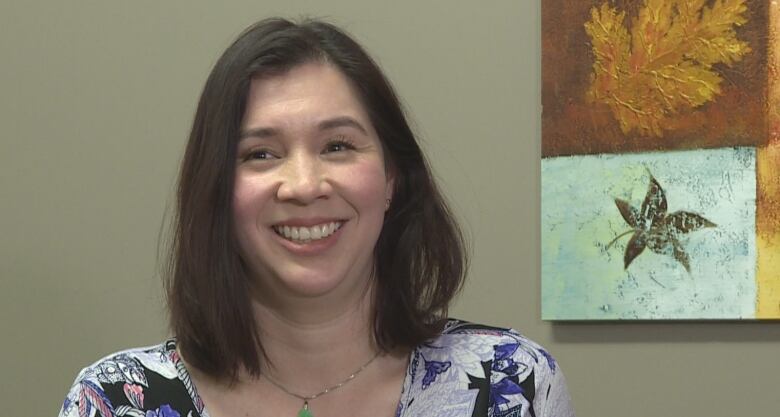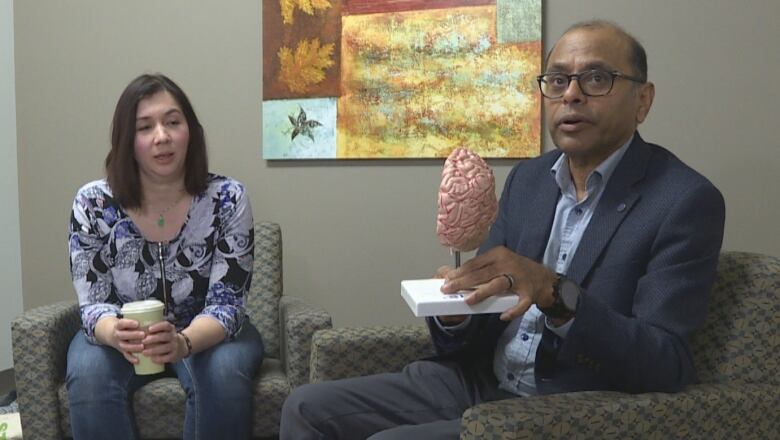'Future used to be a black void': Woman climbs out from under crippling depression in U of C study
Like a pacemaker for the brain, it's working on patients when nothing else has

You might not recognize her today. She doesn't recognize herself today.
Four years ago, Beth Mackay entered a study, a last-ditch attempt, that focused on depression for the 10 per cent of people who are treatment-resistant.
"I couldn't hold down a job. I dropped out of university. I was basically a houseplant. I didn't have any joy in my life. I was just living day by day," Mackay told CBC News.
"I considered a day a success if I got out of bed, had a shower and put on clothes. That was a good day."

She says she was clinically depressed since the age of 11, but it came to a head with a suicide attempt at 17.
"I didn't know what was wrong with me," she said.
"When I started to suspect it was depression, I didn't want it to be. That was embarrassing, like weakness.So I just pressed it down, didn't deal with it and eventually that didn't work anymore."
She learned of a long term depression treatment study designed for people who weren't helped by traditional methods. It involves implanting an electrode in the brain, wired to a rechargeable battery in the chest.

University of Calgary psychiatrist, Dr. Rajamannar Ramasubbu led that study, which recently passed a milestone.
"We are using it for treatment-resistant depression. Patients who failed to improve with conventional treatment, including electroconvulsive therapy, psychotherapy, anti-depressants," Ramasubbu said.
Treatment-resistant
Ramasubbu says about 10 per cent of people with depression are treatment-resistant.
And that's where deep-brain stimulation treatment comes in. It's kind of like a pacemaker for the brain.
Ramasubbu explains it involves targeting the subgenual cingulate region, in the frontal area of the brain below the cingulum.
- I may look 'fine,' but I'm dealing with depression and anxiety the gift that keeps on taking
- 2017 | 'In the picture of my life, I don't exist': Calgary city councillor shares struggles with depression
"This area of the brain is crucial, it connects the frontal and limbic areas of the brain, which are important for emotional regulation. Based on imaging studies, we found that this region is malfunctioning in depressed people. When you use electrodes and stimulate constantly, it becomes normalized and to some extent, it starts working so that emotions will be regulated," Ramasubbu said.
The most recent stage of the study looked at stimulation.
"We compared two types of stimulation. Short pulse width and long pulse width. We found both are equally effective," he said.
Once you get out of bed, you can do anything
This piece of the puzzle will better equip future researchers studying in the field.
But that's less of a concern for participant Mackay.
"The future used to be a black void," she said.
"Now I see a cripplingly large number of options. I can do anything. I can get out of bed in the morning. Once you can get out of bed, you can do anything."
It's the first time she's felt this level of relief. The black void is now goneand Mackay can live up to a commitment she made.
"I promised my dad after my suicide attempt that I would never do that again."
With files from Helen Pike, Emilie Vast and The Homestretch












_(720p).jpg)


 OFFICIAL HD MUSIC VIDEO.jpg)
.jpg)



























































































